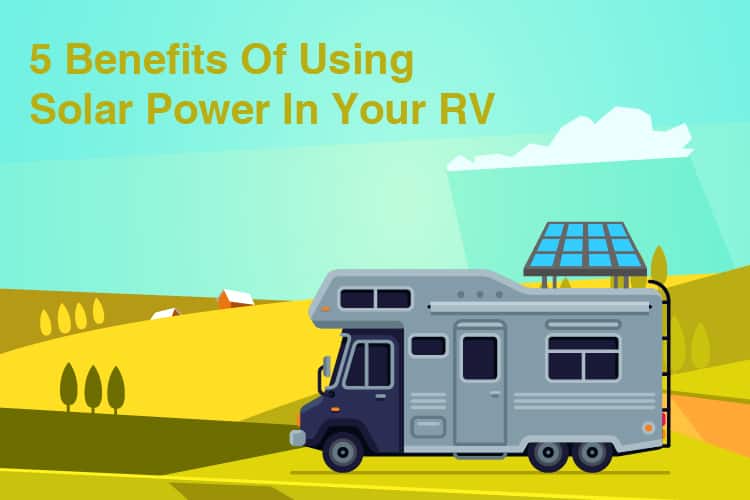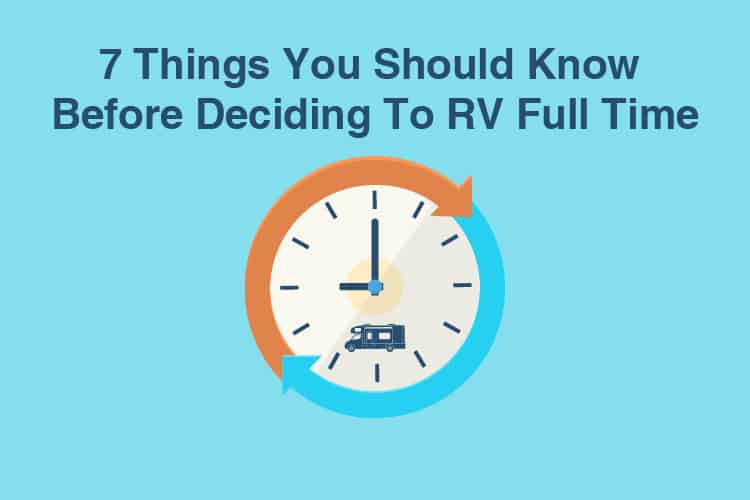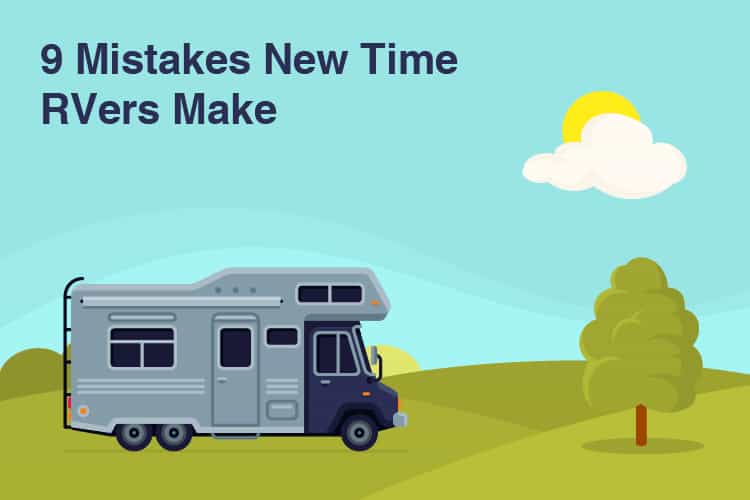Don’t reinvent the wheel, just realign it – Anthony J. D’Angelo
You’ve done it. You’ve finally decided that you’re going to hit the road and see as much of America as you can, while you can.
And what’s more, you’ve already decided that the best way to get out there and experience all of the sights, sounds, and history from sea to shining sea and everything in between, is from the driving seat of your truck and in the comfort of a fifth-wheel trailer.
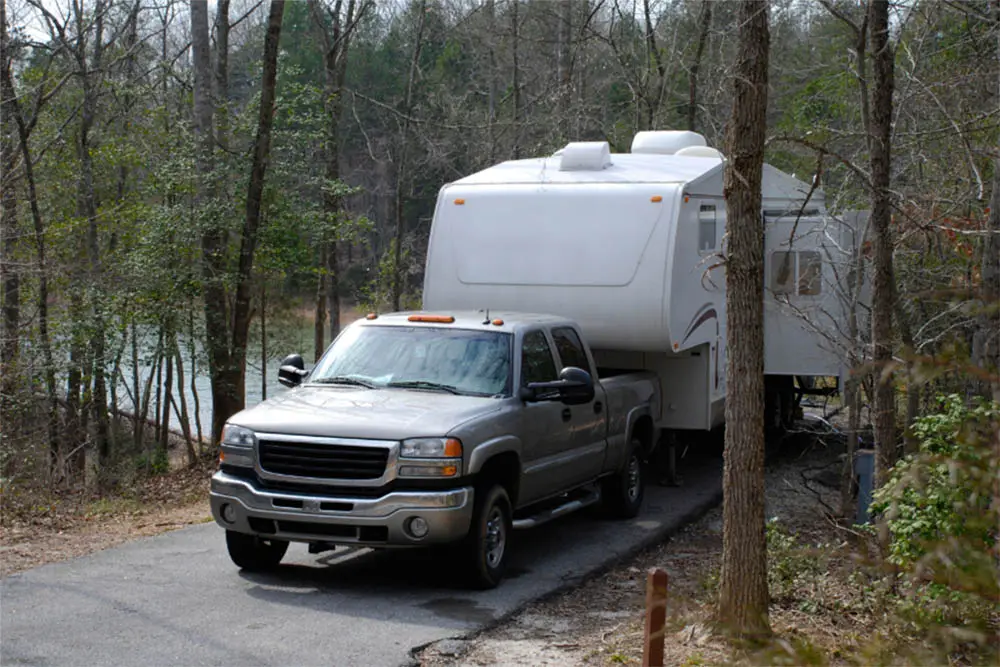
Before you can enjoy life in your new trailer and head for the horizon, and off into the sunset with it, you’re going to need to fit the right hitch to your truck or have it fitted.
And that’s where we come in, as we’re going to guide you through everything that you’ll need to know about how hard getting that hitch bolted to your truck will hit your bank balance.
The good news is, it’s not as financially painful as you think it might be, and the even better news is, armed with the right knowledge, tools, and know-how, you’ll be able to fit a fifth wheel hitch by yourself, and save a surprising amount of cold hard cash.
Fifth Wheel Rewind
Before we go any further, it’s probably prudent to explain, for the benefit of those who came in late or haven’t quite made up their minds about what kind of trailer they want to entrust their future to, what a fifth trailer is.
Based on a similar coupling (or towing) design as the wagons that the original pioneers and settlers traveled west on and the one used by eighteen-wheelers to haul freight, a fifth-wheel trailer is designed to fit into, and be towed, by a hitch that’s fitted in the bed of a truck.
The trailers can vary in length, size, and luxury, and all that they have in common is that they’re built to be towed using a fifth wheel hitch.
Getting Hitched – The Cost Of Installing A Fifth Wheel Hitch
The costs of getting a fifth wheel hitch installed in your truck, or installing it yourself, much like everything else in life, depends on the quality of the hitch and what type of hitch you want to use to tow your trailer.
And, ultimately the budget that you set for the towing system, will dictate the type of hitch that you use, and whether or not you can pay to have it installed by a mechanic, or whether you should do it yourself.
We’re not going to beat around the bush, life’s too short for maybes and if you’re going to be towing a trailer, the only variable that you should be interested in is certainty.
You’ll need, for your own peace of mind, to be certain that your hitch will do exactly what it’s supposed to, and that’s towing your trailer without you having to worry about the possibility that it might unhitch or work its way loose while you’re on the road.
It’s one of those things that, truthfully, you don’t want to compromise on, and it’s better to pay a little more to get a good hitch than regret your choice at some future date.
Besides, a good hitch will make it easier to couple and uncouple your trailer and will make towing it a much smoother and far more pleasant experience.
Taking that into account, having the right fifth wheel hitch fitted by a professional, should cost you somewhere in the region of eight hundred and fifty dollars to eighteen hundred dollars, which seems like an incredibly high outlay, but includes the hitch, labor, and a warranty.
If you wanted to fit the same hitch yourself, it’ll probably cost you between five hundred and fourteen hundred dollars.
And it isn’t a job that you should even attempt to do without the right tools, and that figure doesn’t include the cost of sourcing and buying any tools that you’ll need to do the job if you don’t already have them.
Why does it cost so much regardless of who is fitting the hitch? It’s the simple truth of market forces, a good hitch is going to cost more than a basic one will.
While it’s true that you can get a no-frills hitch for around two hundred dollars, a top-of-the-line, all-singing, and dancing fifth wheel hitch, by itself, can cost considerably more than a thousand dollars.
Even adopting a middle-ground approach, as we always do, means that you’ll probably end up paying somewhere in the region of five to nine hundred dollars for the right hitch.
Choosing The Right Fifth Wheel Hitch
Choosing the right fifth wheel hitch for your truck and trailer should be entirely dependent on four separate factors:
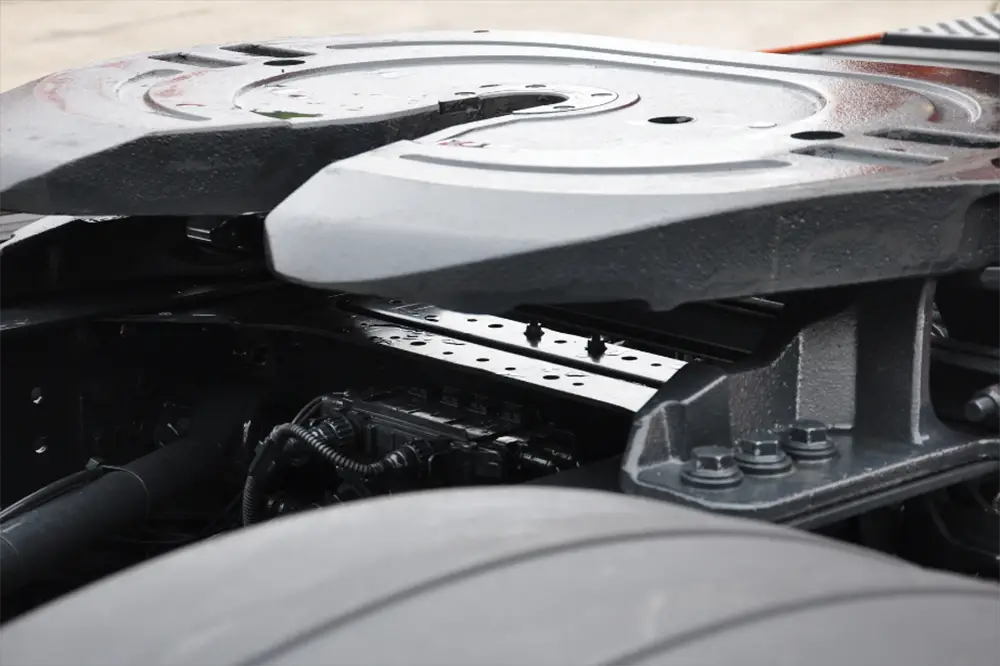
Trailer Size
The weight of your trailer, and to a lesser degree its length, should be the primary driving force governing your choice.
Every fifth wheel hitch has a weight rating, and a maximum capacity that it can tow, so you’ll need to ensure that the weight of your trailer falls within the accepted tolerance boundaries for that particular hitch.
Bed Size
The size of the bed of your truck, whether it’s long or short, will affect where the hitch is fitted and the balance of your truck while you’re towing your trailer.
If you can’t find the information that you need, you can always email or call the manufacturer, explain the problem and they’ll happily provide the information that you need in order to make an informed decision.
A Permanent Fixture
Is the hitch going to rest in the bed of your truck permanently, or do you want to be able to remove it and only fit it when you want to tow your trailer?
The decision will govern how much you’ll pay for your hitch, so think about it carefully before settling on it.
Functionality And Cost
What’s more important? How well the hitch will perform, or how much it will cost? Again, it’s a decision that you’ll need to think about carefully and take some time over before committing to it. At the end of the day regardless of the cost of the hitch, it will do what you need it to do, but how well it does it is more than a little dependent on how much it will cost.
It Isn’t Quite That Simple
Armed with the basic information that you’ll need to find the right hitch for your truck, you’re then going to be faced with another choice.
What sort of hitch do you want to fit to your truck?
While all fifth wheel hitches are designed to do exactly the same thing, which means that you’ll be able to tow your trailer safely regardless of the type of hitch that you choose, there are three different kinds of fifth wheel hitch.
And they are:
Slide Bar
Slide Bars are the most basic, rudimentary hitches that lock around the kingpin (the bar on your trailer that attaches to the hitch), and while they’re perfectly safe, the fit between the kingpin and the hitch isn’t always the tightest.
It makes them noisy, and there’s usually excess movement between the kingpin and the hitch, and can make them slightly daunting if you’re not used to towing a significant amount of weight behind your truck.
Dual Jaw
They offer a better fit between kingpin and hitch than a slide bar does, but they’re still prone to a little movement and are slightly less noisy than the most basic hitch.
Unlike a slide bar hitch, a dual jaw doesn’t lock automatically, so as soon as you’ve positioned your kingpin in a dual jaw hitch, you’ll have to lock it yourself.
And you’ll have to remember to lock it before you start towing, as forgetting to do so can have catastrophic consequences for both your trailer and truck if you don’t.
Single Jaw
By far the most effective, secure, and tight-fitting hitch, single jaws are far more efficient than either slide bar or dual jaw hitches.
Because the fit between the kingpin and the hitch is far tighter, while you’re towing your trailer your truck will feel more stable and the whole experience will be far less noisy.
Unfortunately, those little extras come at a price, which you’ll feel in your pocketbook as single jaw hitches aren’t exactly cheap.
Paying A Professional
By far the easiest, and most effective way to have your hitch fitted is having it done professionally.
All you’ll need to do is choose your hitch, drop your truck off, and pick it up once the installation is complete.
Most garages and mechanics should be able to fit a fifth wheel hitch for you, but you can also ask any reputable RV dealer for their recommendation, and they’ll either be able to fit it, or they’ll be able to point you in the direction of someone who can.
It will cost you more to have your hitch fitted by a professional, but as they’re used to fitting hitches, know what they’re doing and all of their work will be guaranteed should any problems arise, it’s always far more sensible, and wise to defer to the experience and knowledge of a professional.
And for five or six hundred extra dollars, you’ll also get the satisfaction of knowing that the job has been done properly, and you can’t put a price on that kind of security.
Fitting Your Hitch Yourself
Of course, there’s nothing to stop you from fitting your hitch yourself, and thanks to most truck manufacturers installing knock out panels in the beds of their trucks to make the installation easier, you won’t even need to break out a grinder or a blowtorch to cut into the bodywork of your truck to fit it.
However, before you begin the installation, make sure that you have the right tools, installation kit, and hitch to hand and that you know what you’re doing.
There are hundreds of instructional videos on YouTube so take a couple of hours out of your schedule to watch them before you fit your hitch.
And be patient, it isn’t a quick job and should take you somewhere between four and five hours to do the job properly. Take your time, and you should be fine.
And Finally…
Now you know what’s involved, and what it should cost, all you need to think about is whether you want to pay the extra for the peace of mind that’ll come with a professional fitting your fifth wheel hitch, or whether you’re confident in your ability to do it yourself.
The choice is yours.


